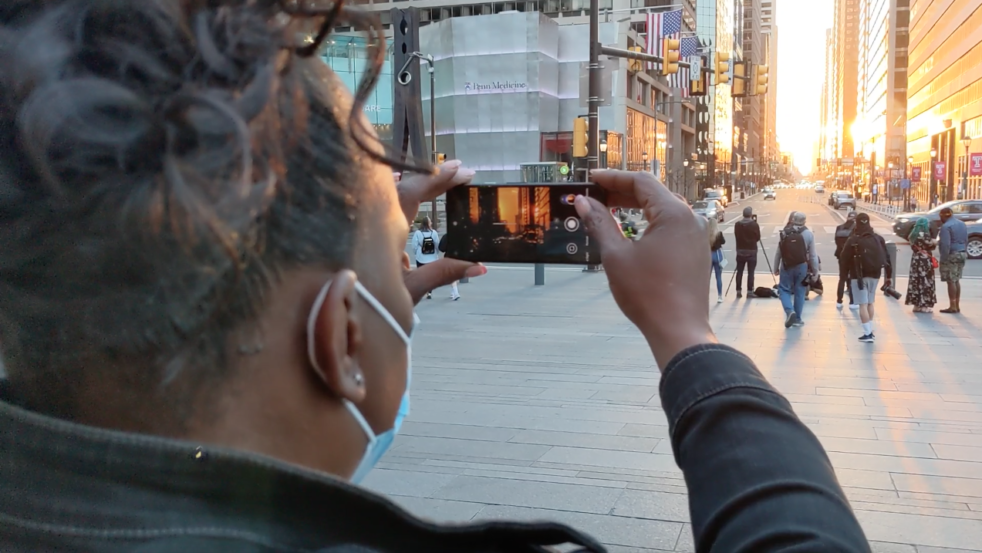Archiving Lived Experiences Through Film
- Debra Harner
- Center for Carceral Communities, School of Social Policy and Practice
-
Student Creative Production Grant

Participants in this support therapy group use cell phones to help create their memiors. Courtesy of Debra Ann Harner
Participants in a support therapy group through the Center for Carceral Communities will document their lived experiences re-entering society after being incarcerated using cell phones. The participants at the Center are predominately African American young men. Their experience of re-entry is generally marked by several challenges that reinforce a “stay in place” mentality, making it easier to repeat risky behaviors and increase recidivism rates. Archiving these lived experiences opens up an opportunity to work within a creative process whereby the medium of documentary film works to circumvent adverse outcomes. Within these vulnerable communities are people driven by resiliency, whose voices are rarely heard. This pilot program, which the Center intends to continue if successful, serves as a form of social justice, as the archival process functions as a means of gathering and uplifting these unheard stories into a powerful collective.
The combination of a mental health and a filmmaking practice creates a wonderful opportunity to explore people’s lived experiences. As an intervention, the creative process and the therapeutic approach of narrative therapy provides a way for participants to externalize and release impoverishing and dominant versions of stories that get in the way of a person’s full potential. When the emphasis is on strength rather than pathology the person has an opportunity to recognize the effects of oppressive societal forces that may have contributed to their problem. As the film group formed, there was an excitement in having an opportunity to learn a new art form that included many aspects of technology. The participants explained that one of the big challenges to reentry is the lack of technical skills due to not having access to computers while in prison. Technology skills and the creative modality of an unfamiliar art form held the interest of the group members. To begin the process, the group member wrote down the event or moment that has caused them problems. Writing one’s memoirs allows a person to craft their own narrative and truth that allows for greater clarity of a problem. As the narratives are re-authored, the use of a short film model does an excellent job capturing or freezing a moment that has affected a person’s life. This work helps to find meaning, as well as acknowledge the positive aspects of their lived experience. Within the final edits of the film, there is an ending, but it is not the end. It is hoped that this has been a healing process, which has given each member a renewed perspective and optimism. Having a new outlook, the group is better equipped to face new and present issues that they may come across.
- 2021
- Center for Carceral Communities
- School of Social Policy and Practice
- Student Grant
- Student Creative Production